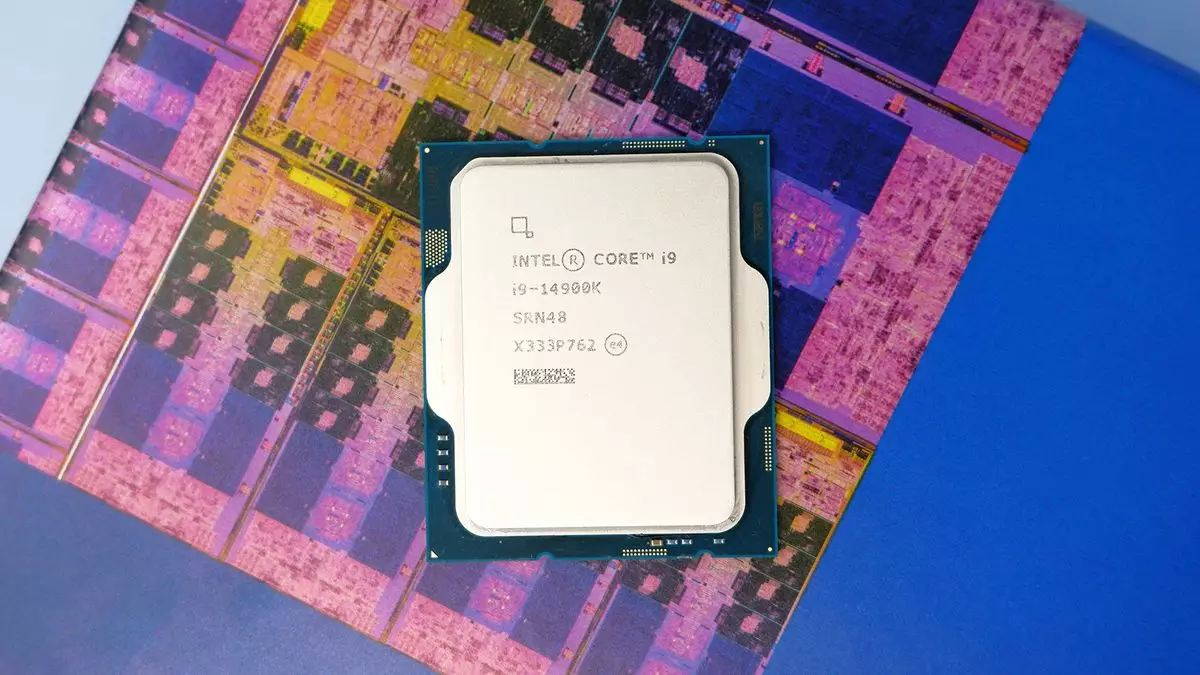In a development that underscores ongoing concerns within the tech industry, Intel finds itself facing a significant class action lawsuit. This legal battle, taking place in a California federal court, revolves around allegations that the company knowingly sold faulty Central Processing Units (CPUs) that are prone to catastrophic failures. The suit, spearheaded by a frustrated customer named Mark Vanvalkenburgh from Orchard Park, New York, shines a glaring spotlight on the seemingly inevitable fallout of product negligence.
Vanvalkenburgh’s contention stems from his purchase of an Intel Core i7-13700K at Best Buy in January 2023, which he claims exhibited severe performance issues, including instability and frequent crashing. Despite his efforts to remedy the situation through the application of Intel’s microcode patch—designed to rectify the CPU’s flaws—he found himself facing ongoing instability and disappointment. This lawsuit is symptomatic of a broader issue—a growing fears among consumers regarding the reliability of high-end computing components.
The root of the controversy lies in the well-documented problems associated with Intel’s 13th and 14th Generation Raptor Lake CPUs. Over the past year, multiple reports have indicated that these chips are vulnerable to failure, raising crucial questions about Intel’s quality control and corporate ethics. Notably, the lawsuit suggests that Intel was aware of these issues as early as late 2022 or early 2023. If substantiated, this claim could have devastating consequences for the company’s reputation.
“By late 2022 or early 2023, Intel knew of the defect,” the lawsuit alleges. The assertion raises significant ethical concerns; it suggests that Intel didn’t act with due diligence to mitigate the repercussions of selling flawed products. The notion that a major technology corporation might prioritize profit over consumer safety is particularly alarming in an industry that thrives on innovation and the trust of its users.
The Resilience of Consumer Rights
Leaning on the premise of consumer protection, the legal action seeks damages that include punitive awards, restitution, and further compensation for affected customers. With legal precedents favoring consumer rights in similar cases, the outcome of this lawsuit could pave the way for increased accountability practices among tech giants. Indeed, as consumers become more tech-savvy and invested in the products they use, pressure on companies like Intel to uphold high standards is intensifying.
In a digital age where performance failures translate to significant disruptions for users, such as lost productivity and data breaches, the stakes are particularly high. The alliance of tech enthusiasts, consumers, and legal entities could incrementally reshape corporate responsibility, encouraging manufacturers to prioritize integrity and transparency in their practices.
Intel’s attempt to rectify the Raptor Lake defects by releasing a series of microcode patches has not alleviated public concern. Despite asserting that the issues can be remedied with updates, the company has been forced to extend warranties on the problematic CPUs and implement a more rigorous return merchandise authorization (RMA) process. Such actions indicate acknowledgment of the severity of the defects and signal a sharp deviation from Intel’s once-unassailable reputation.
As the legal proceedings unfold, Intel must grapple with its place in an industry characterized by rapid innovation and heightened scrutiny. The stakes are not solely financial; a tarnished reputation could result in a loss of consumer trust that takes years to rebuild, especially in a market ripe with alternatives. The company’s recent exclusion from the Dow Jones stock index only underscores the magnitude of its challenges.
A Treacherous Path Ahead
The unresolved nature of the lawsuit raises pressing questions regarding Intel’s approach to consumer grievances. Will the company opt for a drawn-out courtroom battle that may further tarnish its image or will it seek an expedient settlement to minimize potential damages? As the tech community watches closely, this situation serves as a reminder of the delicate balance between innovation and accountability.
The lawsuit against Intel marks a crucial moment for consumers and the tech industry alike. It highlights the necessity for corporations to prioritize quality, accountability, and consumer trust, lest they face the ramifications of neglectful practices. The unfolding drama is more than a legal case; it represents a clarion call for systemic change in an industry that promises to shape our future.

